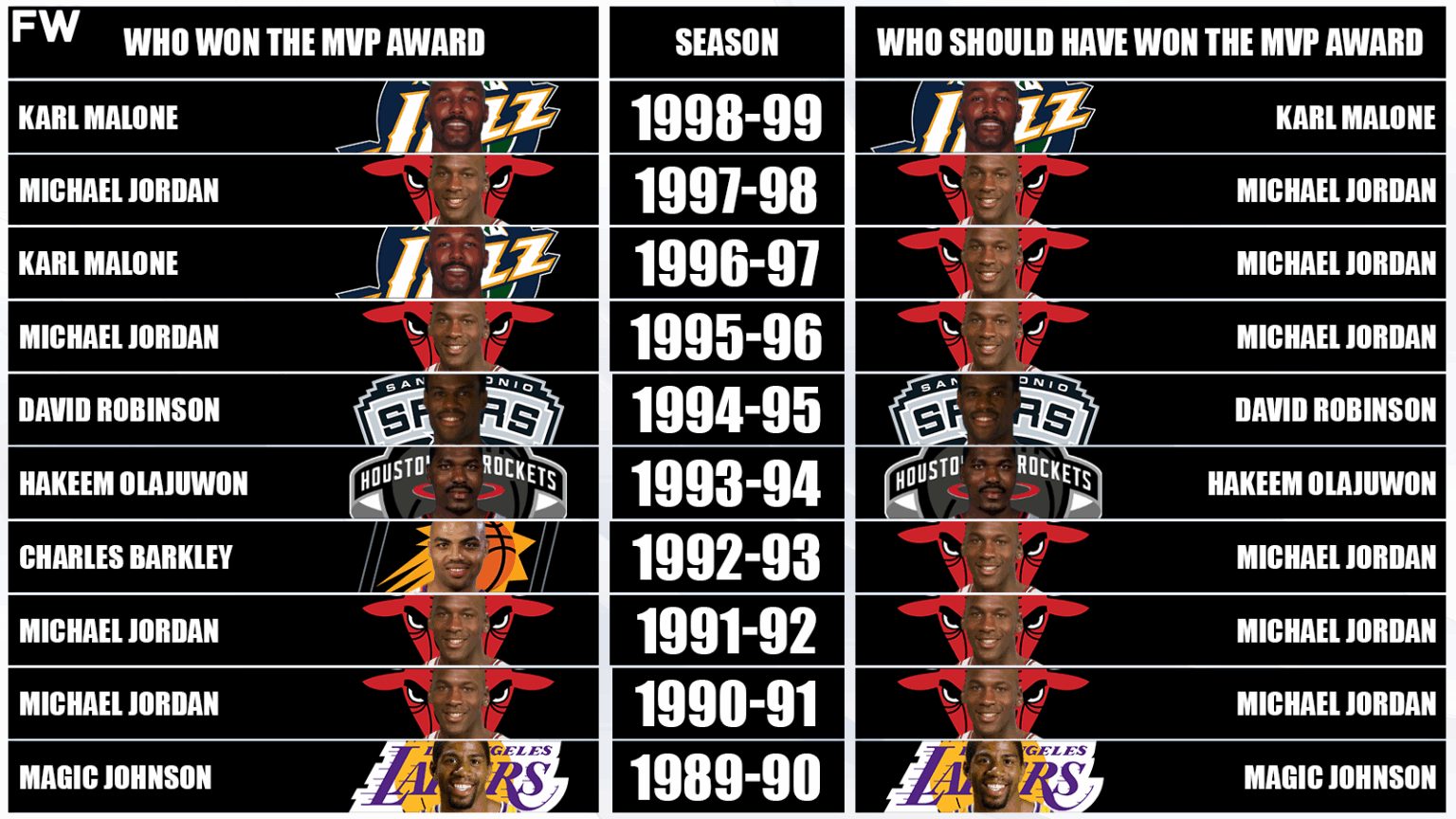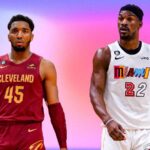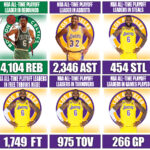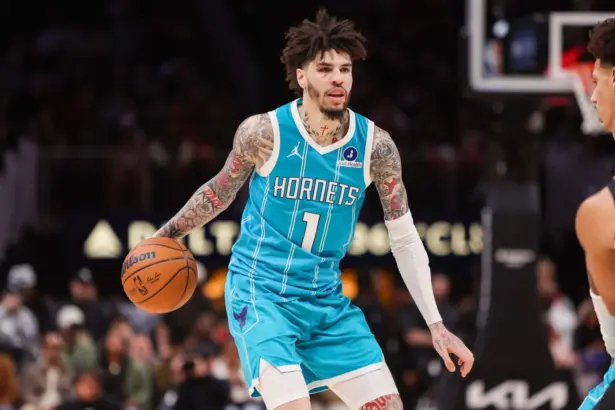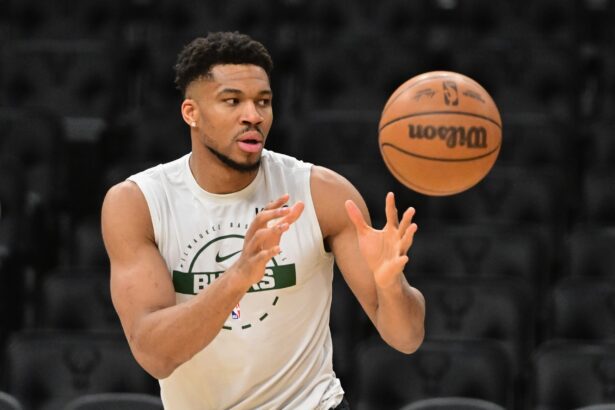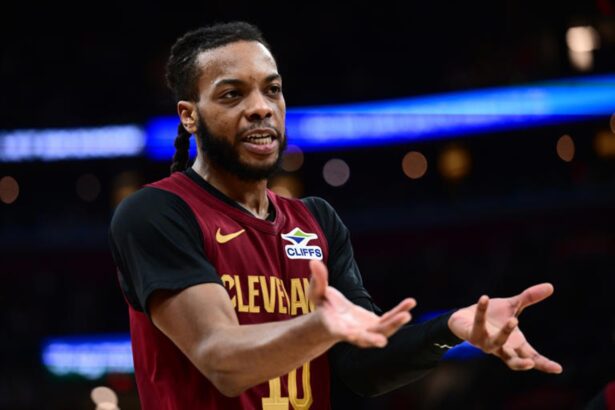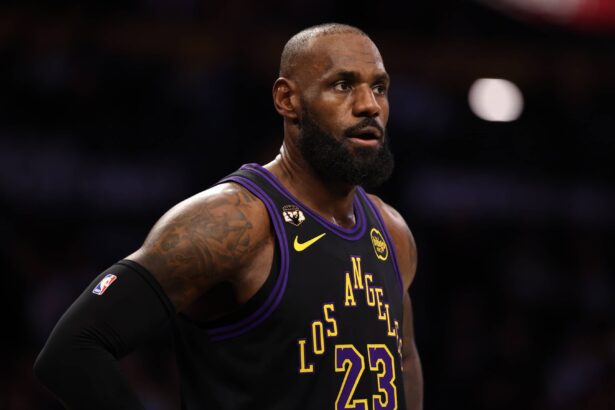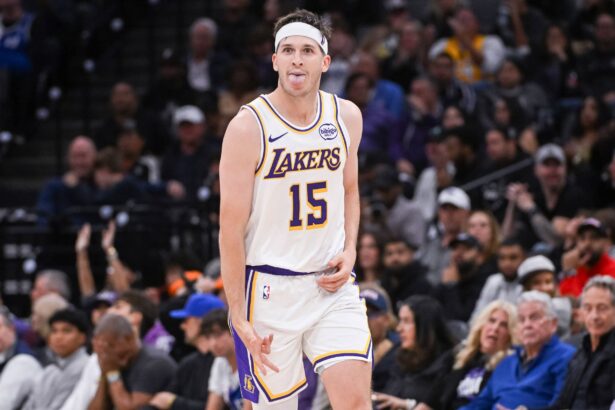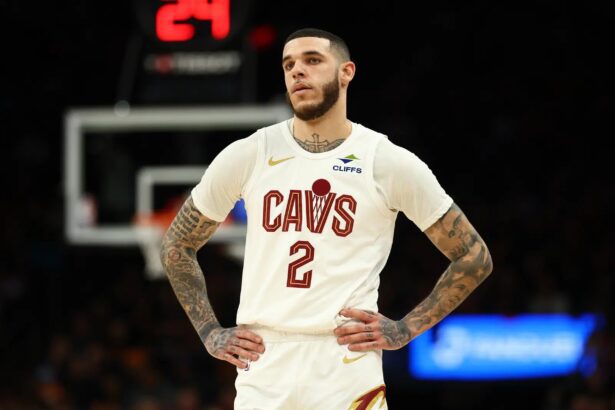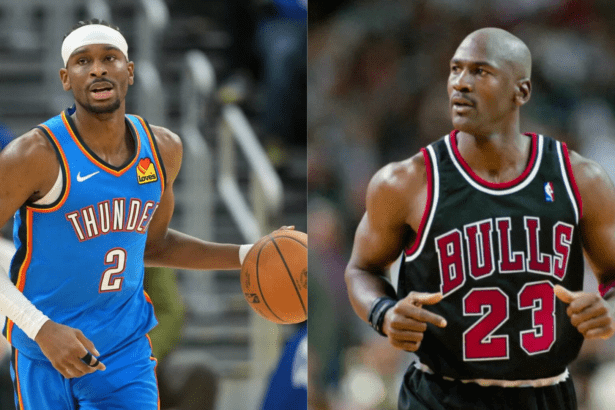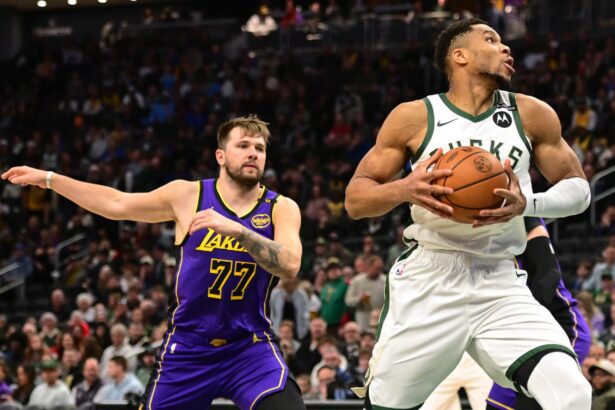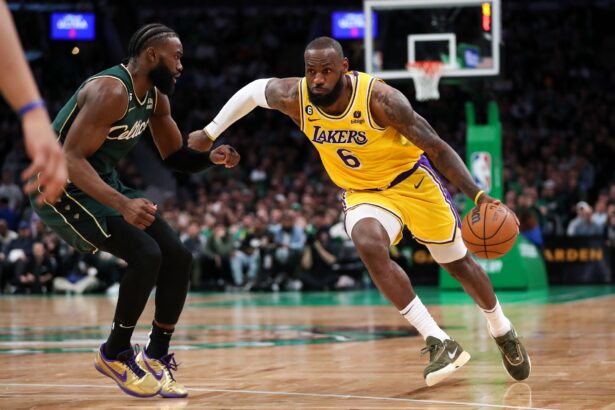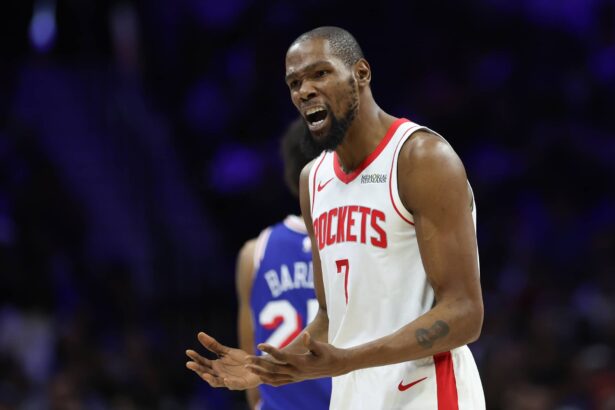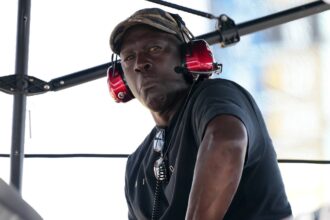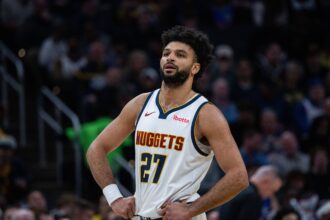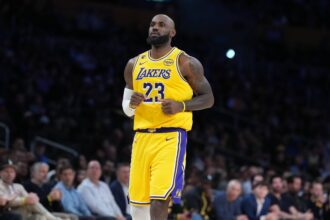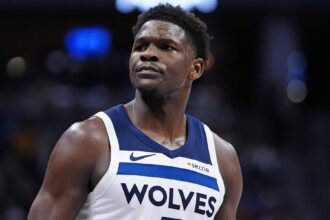One of the most important accolades a player can win is the Most Valuable Player Award. Since only one player is chosen for this award, there is steep competition for being the MVP of your team all season. Not to mention, the NBA is a league full of superstar players who all probably deserve the MVP Award over the course of 82 games. It takes that little bit extra in terms of performance, production, and winning to get a guy over the hump and capture the prestigious award.
No doubt, winning the MVP award is the highlight of most players’ careers since winning an NBA championship is very rare and hard to accomplish. Other than a championship and a Finals MVP trophy, the MVP award has to be the achievement that is most highly distinguished and impressive. We have witnessed some incredible MVP seasons, especially over the last decade. But did each MVP winner truly deserve his award? Oftentimes, voter bias and sometimes statistical analysis without looking at the whole picture means a player is robbed of an MVP award in a given season.
Let’s look at the deserved MVP winners during the iconic 1990s decade that saw Magic Johnson, Michael Jordan, Charles Barkley, Hakeem Olajuwon, David Robinson, and Shaquille O’Neal share the spoils. Did every year’s MVP truly deserve the award, or did some players get robbed? We have already seen how history could have been changed over the last ten years if the deserved MVP was given his just due, including how LeBron James should have had 5 MVP awards. This time, it is time to go back in history to decide who should have won the MVP award between 1990 and 1999.
1989-90 NBA Season
MVP: Magic Johnson 22.3 PPG, 6.6 RPG, 11.5 APG, 1.7 SPG, 0.4 BPG
Who Should’ve Won: Magic Johnson
Magic Johnson was the best player in the world in the 1990 season, even if he had some very solid teammates to play with. Alongside James Worthy, Byron Scott, A.C. Green, and Vlade Divac, Magic spearheaded a talented Lakers side. The legendary point guard beat out Charles Barkley by a mere 22 MVP voting points mainly because he won 63 games with the Los Angeles Lakers and finished 2nd in the NBA in APG behind John Stockton.
The best player on the best team ended up winning MVP that year, even if Barkley was dominant inside. Averaging 22.3 PPG, 6.6 RPG, and 11.5 APG, Magic was a force on the offensive side of the floor and also finished 17th in SPG. Barkley carried the Philadelphia 76ers all year, but Magic had the better record and deserved his MVP award.
1990-91 NBA Season
MVP: Michael Jordan 31.5 PPG, 6.0 RPG, 5.5 APG, 2.7 SPG, 1.0 BPG
Who Should’ve Won: Michael Jordan
While his 1988 season captures the most attention thanks to the Defensive Player of the Year achievement, Jordan’s 1991 season might be the most significant. The legendary Bulls guard accomplished everything in the NBA season, from the scoring title to the NBA title at the end of the year. MJ won his 5th straight scoring title by posting 31.5 PPG on 53.5% shooting from the field while also finishing 3rd in the league in SPG.
The most important aspect of Jordan’s season was finally getting over the hump as an NBA champion with a 61-21 record that ranked 1st in the East and 2nd in the league overall. The MVP award is a regular season award, however, and Jordan was no doubt the best player in the world when it came to scoring, defense, and all-around dominance.
1991-92 NBA Season
MVP: Michael Jordan 30.1 PPG, 6.4 RPG, 6.1 APG, 2.3 SPG, 0.9 BPG
Who Should’ve Won: Michael Jordan
For the second-straight year, Michael Jordan won the MVP award with the Chicago Bulls. This was Jordan’s 3rd MVP award, and he certainly deserved it, considering he led the league in scoring for the 6th season in a row. Averaging 30.1 PPG on 51.9% shooting and chipping in 6.4 RPG and 6.1 APG, no player was as dominant as the legendary Bulls guard.
Of course, Chicago finished with an incredible 67-15 record, and Jordan ended up winning his second championship to cap off another spectacular individual season. Michael ended up winning the valuable individual award ahead of Clyde Drexler of the Portland Trail Blazers (25.0 PPG, 6.6 RPG, 6.7 APG). Just like in the regular season, Drexler would finish second to Michael in the NBA Finals.
1992-93 NBA Season
MVP: Charles Barkley 25.6 PPG, 12.2 RPG, 5.1 APG, 1.6 SPG, 1.0 BPG
Who Should’ve Won: Michael Jordan 32.6 PPG, 6.7 RPG, 5.5 APG, 2.8 SPG, 0.8 BPG
In his first season with the Phoenix Suns, Charles Barkley burst onto the scene as the MVP of the league thanks to his dominance on the court on a 62-20 squad. Barkley was the best player on the best team in the league, perhaps a solid reason why the power forward was MVP. Charles was dominant on the court, hauling down 12.2 RPG, which ranked 6th in the league.
However, to be fully fair, in terms of impact, Barkley was not as great of a player as MJ. The power forward was extremely valuable to his team and would have deserved MVP in any other year, but Jordan was simply a better scorer, defender, and leader. Michael led the NBA in PPG and SPG and also captured the NBA title at the end of the year to prove he deserved MVP. Charles Barkley and the Phoenix Suns could not cap off the season with an NBA title because Jordan’s Bulls would win the chip at the expense of the Suns in the Finals.
1993-94 NBA Season
MVP: Hakeem Olajuwon 27.3 PPG, 11.9 RPG, 3.6 APG, 1.6 SPG, 3.7 BPG
Who Should’ve Won: Hakeem Olajuwon
The 1993-94 season was the year of Hakeem Olajuwon, the best big man and all-around player in the league, during Michael Jordan’s retirement. The Dream won MVP by leading the Houston Rockets to the 2nd seed in the West, and the star ranked 3rd in scoring. There was absolutely no answer for Hakeem in the paint, and he was the best player in the world, with Michael Jordan retiring following his third straight championship in 1993.
Thanks to his unstoppable post-game and incredible basketball IQ, Hakeem also won Defensive Player of the Year and ranked 2nd in BPG. There wasn’t a better leader and overall superstar in the game during 1995, and that is why Hakeem had an all-time great season that was capped off with an NBA title. Olajuwon won the MVP award in 1994 and absolutely deserved it.
1994-95 NBA Season
MVP: David Robinson 27.6 PPG, 10.8 RPG, 2.9 APG, 1.7 SPG, 3.2 BPG
Who Should’ve Won: David Robinson
The legendary San Antonio Spurs legend David Robinson captured the MVP award in 1995, posting monster two-way statistics while leading his team to the best record in the Western Conference. In fact, Robinson’s team had the best record in the league at 62-20. The Admiral also won the MVP award after falling short in the previous year, so it was the big man’s time as the most dominant big in the NBA.
David Robinson finished 3rd in scoring, 8th in rebounds, and 3rd in blocks. Even if the San Antonio Spurs would fall to the eventual champion Houston Rockets in the Western Conference Finals, Robinson was the best two-way star in the NBA in 1995 and deserved the MVP award. So far, the 1990s decade did a great job in rewarding the deserved MVP award other than the 1993 season without disrespect to Charles Barkley.
1995-96 NBA Season
MVP: Michael Jordan 30.4 PPG, 6.6 RPG, 4.3 APG, 2.2 SPG, 0.5 BPG
Who Should’ve Won: Michael Jordan
In the 1995-96 season, Michael Jordan averaged 30.4 PPG on 49.5% shooting from the field in his first full season following his retirement. The guard assumed his position as the best player in the world almost immediately, winning his 8th scoring title in his 9th season. Welcome back, Michael Jordan, the league missed you. After back-to-back titles, Hakeem’s time winning rings was over as MJ was back on top.
MJ was not only an elite scorer but a dominant defensive player who managed to once again prove his worth as a lockdown talent. It was certainly amazing to see how Jordan and sidekick Scottie Pippen led the Chicago Bulls to a (then) record-breaking 72-10 record and a 4th NBA championship so quickly. The MVP award should be given to the best player in the world in a given year, and that was Michael Jordan.
1996-97 NBA Season
MVP: Karl Malone 27.4 PPG, 9.9 RPG, 4.5 APG, 1.4 SPG, 0.6 BPG
Who Should’ve Won: Michael Jordan 29.6 PPG, 5.9 RPG, 4.3 APG, 1.7 SPG, 0.5 BPG
Karl Malone is a top-2 power forward of all time and definitely the second-best player in the world during the 1997 season, but his first MVP award win was very polarizing. The reason was that Michael Jordan had the best record in the game and won his 9th scoring title while shocking audiences with spectacular feats of athleticism. But Malone got the bulk of the votes, perhaps due to voter fatigue of making MJ the MVP winner five times already.
But do not take away from The Mailman’s greatness, he posted 27.4 PPG on 55.0% shooting from the field, which ranked 2nd in the league behind MJ. Malone also ranked 11th in the league in rebounds with 9.9 RPG. The Jazz also finished with the 2nd best record in the league behind Jordan’s Bulls, but the power forward still captured the MVP. As great as Malone was, he should have finished runner-up in 1997.
1997-98 NBA Season
MVP: Michael Jordan 28.7 PPG, 5.8 RPG, 3.5 APG, 1.7 SPG, 0.5 BPG
Who Should’ve Won: Michael Jordan
Michael Jordan once again became on top with his 4th MVP award in a decade by winning his 10th scoring title for the 62-20 Chicago Bulls. As expected, the Bulls had the best record in the East while also tying the Utah Jazz in terms of the best record in the entire league. Jordan’s scoring was on full display, posting 28.7 PPG on 46.5% shooting from the field, although it must be mentioned that his efficiency was slightly below his standard. Some continue to argue that MJ did not deserve his MVP award, but when looking at the rest of the competition, he was the best choice.
Karl Malone led the league in win shares (16.4), but Jordan’s Bulls were a more attractive team thanks to the shooting guard’s elite two-way play. Not to mention, Malone already had stolen the 1997 award from him. Gary Payton finished 3rd in MVP voting, but he also won fewer games than MJ’s Bulls, and his APG ranking finished 7th in the NBA. Michael led the league in scoring and had the best record, hence the MVP award.
1998-99 NBA Season
MVP: Karl Malone 23.8 PPG, 9.4 RPG, 4.1 APG, 1.3 SPG, 0.6 BPG
Who Should’ve Won: Karl Malone
With Michael Jordan retiring for the second time, Karl Malone took his place as the best player in the league by winning his second MVP award. The Mailman posted 23.8 PPG on 49.3% shooting from the field at age 35, certainly solid numbers for the best player on the team with the best record (tied with the San Antonio Spurs). This time, there should not be any doubt about who the most dominant player in the world was, unlike in 1997.
The season was shortened due to the lockout, but Malone still appeared in 49 of 50 games and had a tremendous impact with his leadership for the talented Jazz squad. Even though the Jazz faltered in the playoffs in the second round to the Portland Trail Blazers, the MVP award is a regular season achievement, and Malone did enough to win his second MVP award.
We sincerely appreciate and respect you as a reader of our site. It would help us a lot if you follow us on Google News because of the latest update.
Thanks for following us. We really appreciate your support.

